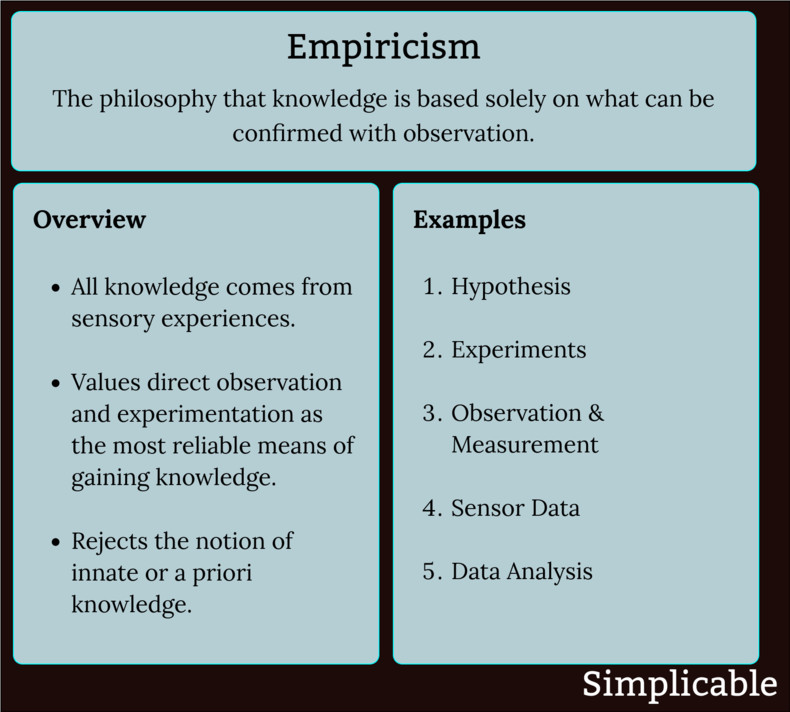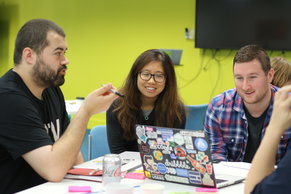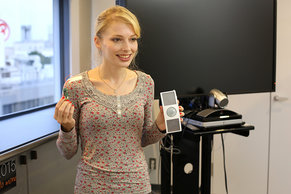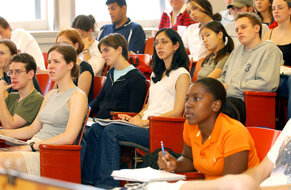Observation
A farmer who observes the effect of a companion planting on a field in order to build evidence that it appears to have some beneficial effect.Measurement
Measuring the yield of a field that uses a particular farming practice by weighing the vegetables the field produces in a period of time.Sensors
Where it is often claimed that empiricism is based on the human senses, in practice it is often based on scientific instruments and devices known as sensors that collect data from the physical world. For example, data collected from a magnetometer that records magnetic fields that human's can't sense directly.Hypothesis
The scientific method calls for a hypothesis to be formed with rational thought and confirmed with empirical evidence and not the other way around. Taking data that you have and composing a hypothesis that fits the data doesn't produce valid science. For example, if you measure the frogs in a field and 75% are green and 25% are brown and then proceed to form the hypothesis that "75% of frogs are green" this is complete nonsense from the perspective of the scientific method.Experiments
An experiment is a procedure designed to test a hypothesis with observation and measurement using controls that help to increase the validity and reliability of results. For example, an experiment on companion plantings that occurs in a lab that allows for a standardized environment where the results of a experiment group are compared to negative and positive control groups.Falsifiability
In order to prove a hypothesis with empirical evidence, it must be falsifiable meaning that it is possible to disprove with an observation. For example, the hypothesis "all rocks are grey" is falsifiable because discovery of a rock that is not grey would disprove the theory.Correlation vs Causation
Correlation are things that show a relationship in data. For example, a data set that indicates men who wear blue ties are more likely to have a heart attack than men who wear red ties. Causation is where this relationship is more than random such that one thing is causing the other. For example, years of heavy smoking increases the probability that an individual will get a particular disease. It is very easy to confuse correlation and causation such that this is one of the primary ways that knowledge based on empirical evidence ends up being wrong.Data Dredging
Data dredging is the use of automated data analysis to find correlations in data. Due to the capability of automated tools to quickly check for billions of patterns in data, they often find a pattern that is meaningless. Finding patterns with data dredging and then fitting a hypothesis to results is essentially fraud from the perspective of the scientific method. Data dredging does have a place in discovery and formation of a hypothesis that then has to be confirmed with new sets of data with valid reasoning that separates correlation and causation.Biases
As with reasoning, empirical analysis is prone to a large number of biases and fallacies that can invalidate results. For example, survivorship bias that bases data only on the winners in a particular situation such as a study on stock returns that fails to include the effect of bankrupt companies that were delisted.Quantitative Fallacy
The quantitative fallacy is the mistaken belief that something must be true because it is supported by numbers. For example, if a public speaker says that "most people prefer pet frogs to dogs" they may be quickly dismissed. If the same speaker says "66% percent of people say they prefer pet frogs to dogs" an audience may be far more likely to believe them even if this data is made up or based on a manipulated statistic.Empiricism vs Rationalism
Rationalism is the philosophy that knowledge is based on valid reasoning without any requirement that this be directly confirmed with the senses. Empiricism and rationalism are often presented as being in opposition to each other. In practice, rationalism plays an important role in science such that these two methods complement each other. For example, reasoning plays a primary role in the formation of hypothesizes, interpretation of cause and effect, validation of methods and identification of biases.Summary

| Overview: Empiricism | ||
Type | ||
Definition | The philosophy that knowledge is based solely on what can be confirmed with the senses. | |
Definition | The philosophy that knowledge is based solely on observation and measurement with instruments, sensors and other sources of numerical data. | |
Related Concepts | ||




















